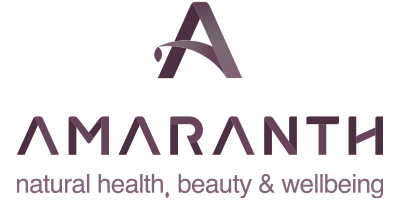Supporting Children’s Brain Health and Concentration: Why Omega-3 Matters

In recent years, we’ve seen a significant rise in parents asking about concentration support for their children. While some of this increase is likely due to greater awareness and better diagnosis, modern life also presents unique challenges for developing brains. Smartphones, gaming, and fast-paced lifestyles create constant distractions, while academic pressures and testing highlight the challenges of focus and cognitive performance.
Supporting children’s brain health goes beyond removing distractions—it involves sleep, nutrition, and lifestyle. One nutrient, in particular, stands out: high-quality omega-3 fatty acids. I’ve seen firsthand how omega-3 supplementation transformed my own son’s concentration during his school years, from Year 9 through to GCSEs and beyond.
The Science Behind Omega-3 and Cognitive Function
A study published in Nutrients explored the link between omega-3 status and cognitive performance in 266 Dutch teenagers aged 13–15. Researchers found that the average omega-3 index, a measure of fatty acid status, was low at just 3.83%, far below the recommended range of 8 to 11%. Low omega-3 levels are unsurprising, as nearly 14% of the students did not consume any fish, and 77% ate fish only rarely.
Importantly, higher omega-3 levels were associated with better information processing, improved attention, and fewer errors on cognitive tests. In other words, teens with higher omega-3 status were able to focus more effectively and make fewer mistakes.
The researchers concluded that increasing omega-3 intake is essential, not just for cognitive function, but also for cardiovascular health. While this study focused on Dutch teenagers, similar results are likely in the UK, where dietary patterns are comparable.
Why Omega-3 is Crucial for Children’s Brains
Omega-3 fatty acids, particularly DHA (docosahexaenoic acid), are vital for brain growth and function:
- Brain development: DHA is a key structural component of the brain, especially in areas responsible for planning, problem-solving, and focused attention. During childhood and adolescence, adequate DHA supports sensory, perceptual, cognitive, and motor development.
- Cognitive performance: Research indicates that DHA improves learning, memory, and IQ. A review of seven studies found that DHA supplementation improved school performance in five of them, including reading, spelling, and overall learning ability.
- Reading and maths skills: The DOLAB study at Oxford University found that children in the lowest literacy groups improved their reading age significantly after four months of daily omega-3 supplementation.
- ADHD support: Children with ADHD often have lower blood levels of omega-3s. Supplementation may offer an alternative or complementary approach to conventional treatments, which can have significant side effects.
Modern Diets Are Low in Omega-3
Despite their importance, omega-3s are no longer abundant in the modern Western diet. Nuts, seeds, and oily fish are the richest sources, but many children rarely consume these foods. Instead, diets are high in omega-6 fats from meat, dairy, and vegetable oils. While both omega-3 and omega-6 are essential, the ideal balance is 1:1. In reality, the typical Western ratio is closer to 20:1, promoting inflammation and chronic health issues.
We still have a perception in the UK that fats are bad. Omega-3 fatty acids are not ‘bad fats’, they are brain boosters, heart protectors, and inflammation fighters. Supporting children’s concentration and cognitive development requires a holistic approach, but ensuring adequate omega-3 intake can be one of the most impactful steps you take.
Choosing an omega 3 supplement
Omega 3 supplementation offers a convenient way to support a healthy omega balance when food sources are low but there are huge difference in quality and purity of omega 3 supplements. We recommend that you only buy through a registered nutritional therapist and seek advice as to the brand and dosage to take. There are considerations that you should be aware of :
-
The source of omega 3
Fish oil tends to be the highest source of EPA and DHA and so that is what I usually recommend. For vegan or vegetarians, I suggest an algae supplement as these can also provide DHA and some EPA.
-
Purity and sustainability
This is critical when it comes to fish oil supplements. Our waters are carrying a lot of toxins, and you do not want these in your supplements. Look for third party testing or ideally certifications such as IFOS or MSC.
-
Dosage matters
Labelling of omega 3 supplements can be misleading. Often the total amount of fatty acids is reported on the label, making a product look like it has a higher dosage than it actually has. You need to look at the EPA/DHA level. We can advise on good levels for you or your children dependent on age and health goals (just contact us). Also check that the dosage given is per capsule – another sneaky marketing ploy is to give a dosage for 2 or more capsules to make the product appear stronger.
When it comes to omega 3 supplements, our recommended brand is Bare Biology. They are the best in the UK for product dosage, sustainability, purity and certifications.
Additional steps to Support Brain Health and Concentration
Alongside omega 3 intake from foods and supplementation, there are other essential steps to support brain health and concentration in both children and adults:
- Prioritize sleep: Adequate rest is crucial for attention, memory consolidation, and emotional regulation.
- Reduce distractions: Limit screen time, particularly during homework and bedtime.
- Ensure balanced nutrition: Keep a check on refined sugars and processed foods – these will impact focus and concentration. Include high fibre foods such as wholegrains (oats and brown rice) and vegetables. These slow the blood sugar response and provide vital gut support for gut/brain connection.
- Encourage physical activity: Exercise supports brain health, improves mood, and enhances focus.
- Support mental well-being: Mindfulness practices, creative play, and outdoor time can reduce stress and improve attention span.
Want to find out more about omega 3, join us for a talk by Kirsten from Bare Biology on Thursday 9th Oct at Amaranth in Bramhall. The Mental Health Connection: Why Omega-3 Matters (A deep dive into the benefits of omega-3 for mental health including depression, anxiety, and mood disturbances relating to PMS, PMDD, menopause and neurodiversity.)
